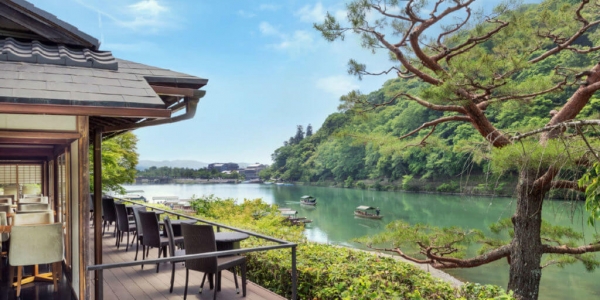
Japans Hospitality Secret
2017.09.01
The Japanese have a term called “Omotenashi”, which signifies the traditionally correct and proper way to treat a guest, and it is this term that has become somewhat of a guiding principle for much of the nation’s hospitality industry.
Perhaps it is this long-standing commitment to hospitality that has driven steadily increasing interest in Japanese tourism in recent years from both domestic and international investors. It’s difficult to pinpoint an exact cause, but it is certain that the investments are increasing and new hotel developments are accelerating in kind to accommodate growing numbers of inbound tourists, according to a 2016 report by the real estate firm CBRE.
A great example of the Omotenashi ethic can be found at Hoshino Resorts, which has been a family business for more than 100 years and is comprised of 35 resorts throughout Japan, including the brands Hoshinoya, Kai and Risonaire. One of the things that have distinguished Hoshino’s commitment to Omotenashi is how the company requires all of its employees to be well versed in the many facets of hospitality, not just their specific jobs.
Which is to say that the employees of Hoshino Resorts are specialists in more than just one role—for example, reception, housekeeping, or kitchen duty—becoming well-versed instead in all duties, a practice that allows the Hoshino Resorts’ staff to deliver the ultimate experience to each guest.
In addition to the commitment to Omotenashi, general interest in Japan has helped fuel this steady increase, Hoshino Resorts CEO Yoshiharu Hoshino said in interviews. Basically, international interest and curiosity in Japanese culture has driven demand for luxury resorts on the island. This assertion was backed by the CBRE report, which found that foreign visitors are flocking to Japan, especially to gateway cities that have well-known reputations overseas.
Stakeholders in the Japanese market hope to build upon this success and they have set themselves a goal of welcoming 40 million international travelers each year by 2020, when Tokyo is scheduled to host the Olympics and the Paralympics. To help the country reach this goal, Japanese leadership has recently cleared the way for a full legalization of Airbnb-style short-term accommodations, which have helped to make locations across the world more accessible for would-be guests.
While these sorts of business is not uncontroversial and has at times caused chaos within traditional hospitality models, Hoshino has said that for a destination to thrive, it is important for it to offer both short-term Airbnb-style rentals as well as resorts like his, as the two markets don’t necessarily accommodate the same types of travelers. Travelers, he noted, are a diverse group that have many different needs.
Image: Hotel Kyoto
Source by:https://www.tophotelprojects.com/en/japans-hospitality-secret/
